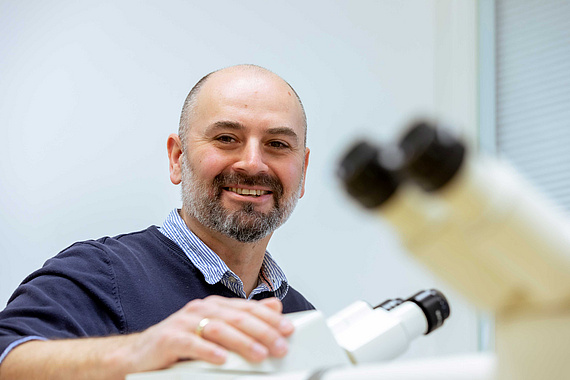
Dem Phänomen des Mikrochimärismus auf der Spur.

PI: Thomas Kroneis
Focus: During most, if not all, pregnancies, there is a mutual exchange of cells between mother and child. These microchimeric cells can reside in the host body for decades. The function of this phenomenon has not been understood yet, although - or because - microchimeric cells are associated with processes as diverse cancer, autoimmune diseases, pregnancy disorders, tissue regeneration. Thus, our current projects focus on investigating how the microchimeric cells can transmigrate into the other body and in which tissues/ organs they may settle down.
Network: In our research we cooperate with Gerald Höfler, Irene Speicher (Diagnostics and Research Institute for Pathology), Herbert Fluhr, Philipp Klaritsch (Department of Obstetrics and Gynaecology). Internationally, we work in a Microchimerism Consortium together with Amy Boddy (University of California Santa Barbara), Henderson Cleaves (Blue Marble Space Institute of Science/Tokyo Technical University), Michael Eikmans (Dept. of Immunology, Leiden University Medical Center), and Frank Schildberg (Clinic for orthopedics and trauma surgery, University Hospital Bonn.
Members:
Cooperations international:
Cooperations national:
Alumni:



